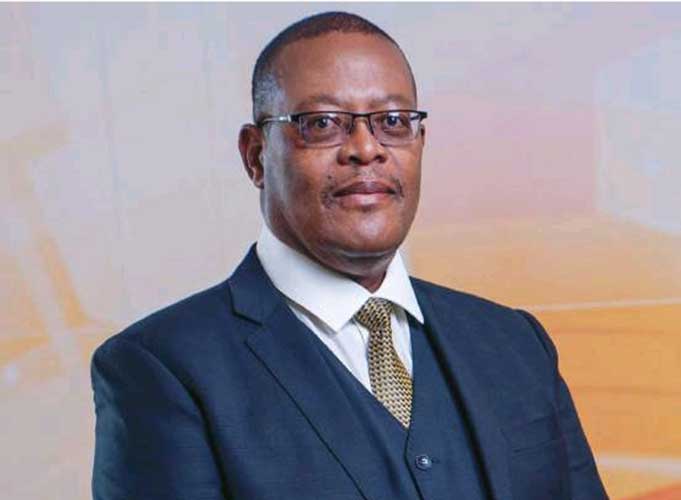
BY SHAME MAKOSHORI POSB’S CEO Edmore Kandlela has given thumbs up to a privatisation process underway at the financial institution as he assured stakeholders that a deal would help the firm iron out its “shortcomings”.
In an address to stakeholders during an annual general meeting (AGM), Kandlela said attracting private capital would also bolster its “competitive edge”.
Apart from short references to one of the country’s longest running privatisation processes, it was the first time that the respected banker shared his full views.
His positive pitch is likely to give impetus to the process that he has presided over for several years, but will only end after his departure at the end of October.
“Some of the shortcomings that we are experiencing will be (addressed) by the privatisation thrust,” Kandlela told the AGM.
“We believe from the models that have been submitted to the technical committee, if we ably articulate those and with the right kind of a partner, we will see our competitive edge gaining.”
Government controls 100% shareholding in POSB but under a state enterprises reform strategy that gained traction in 2018, the firm is among several companies whose shareholding will be opened to private players.
Authorities see the strategy as vital in rebuilding government’s mostly insolvent firms, which are perennial drainers of public funds.
- Chamisa under fire over US$120K donation
- Mavhunga puts DeMbare into Chibuku quarterfinals
- Pension funds bet on Cabora Bassa oilfields
- Councils defy govt fire tender directive
Keep Reading
Kandlela’s comments came after government representatives at the AGM asked him to explain how the bank would tackle several shortcoming, among them a smaller footprint that does not resonate with its mandate to extend financial inclusion beyond urban areas.
The government wanted to know how the bank would attract youths to open accounts.
Most of POSB’s one million customers are old, mostly retired citizens.
The bank executes its operations through a network of 32 branches and over 300 agencies.
On Monday, POSB chairman Israel Ndlovu said significant inroads had been made towards privatisation, with crucial documents already submitted to Finance minister Mthuli Ncube.
The documents will be submitted to Cabinet after the minister’s review, Ndlovu added.
Kandlela marked his departure by delivering $1,6 billion net profit for the half year ended June 30, 2022.
The bank declared $145 million in dividends to the government for the year ended December 31, 2021.
POSB’s cheque was delivered to the Ministry of Finance and Economic Development at the AGM.
Kandlela’s departure is in line with statutory provisions limiting the tenure of CEOs for state owned firms to a maximum tenure of 10 years.
At Monday’s AGM, the top banker received a flood of praises from government and the POSB board for serving the financial institution “honestly, professionally and diligently”.
The POSB board was granted authority to pay Kandlela a two months gratuity for every year serviced.
Before Ndlovu delivered the message, the bank announced that profits for the half year to June 30 rocketed to $1,6 billion, compared to $347 million during the prior comparable period.
POSB reported a $1,4 billion positive variance to its budget during the period, according to chief finance officer, Garainesu Changunda, who attributed it to a stricter cost containment regime.
“The bank achieved $1,6 billion in net profit during the half year to June, from $347 million in 2021,” Changunda told the AGM.
“The bank is adequately capitalised. The capital position is strong, and it will provide us with funding to support our growth aspirations.
“Our capital is well above the industry average.”
Deposits improved to $6 billion during the period, compared to $3,6 billion previously, according to Kandlela.
He attributed the rise to improved civil service salaries among several factors.
Ndlovu, who also presented an update about POSB’s privatisation, said the board had exercised its discretion to come up with a commensurate gratuity.
“Mr Kandlela is due to retire as CEO of the bank in terms of statutory provisions having served the bank for more than 10 years,” he said.
“He joined the bank in 2003, which makes it 19 years.
“Mr Kandlela retires after loyally and diligently serving the bank. The board agreed that a gratuity be paid the outgoing CEO subject to the approval of this meeting.
“The gratuity of two months’ gross salary for every year of service up to a maximum of 10 years has been recommended.
“It is recommended that Mr Kandlela be paid a gratuity…it will be 20 months’ salary that will be paid.”










